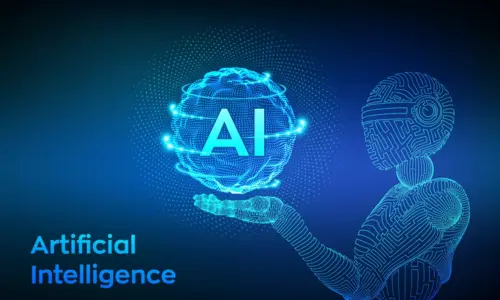
Artificial Intelligence (AI) has rapidly transformed various aspects of our lives, from communication and entertainment to healthcare and transportation. With its potential to revolutionize industries and enhance efficiency, AI has become a topic of both excitement and apprehension. The question of whether we should fear artificial intelligence is a complex one, as it involves examining its capabilities, limitations, and ethical considerations. In this blog, we will delve into the myths and realities surrounding AI, exploring the reasons for concerns while also highlighting the immense opportunities it presents.
Reality: While AI has shown remarkable progress in specific tasks, it's not poised to replace humans entirely. AI excels in pattern recognition and data analysis, but it lacks the nuanced decision-making, creativity, and empathy that humans possess. Instead of displacement, AI is more likely to augment human capabilities, leading to increased productivity and innovation.
Reality: AI operates based on algorithms and data. It lacks consciousness, emotions, and intentions. The fears of AI rebelling or having malicious intent are projections of human qualities onto machines. Responsible AI development involves setting clear boundaries and ensuring transparency in decision-making processes.
Reality: AI systems are not immune to errors. They can produce biased or inaccurate results if trained on biased data. The key is continuous improvement, refining algorithms, and addressing biases through ethical AI development practices.
Reality: While AI can automate certain tasks, it also generates new roles. Historically, technological advancements have led to job shifts rather than mass unemployment. AI can eliminate mundane tasks, allowing humans to focus on more strategic and creative endeavors.
1. Bias and Fairness: AI can inherit biases present in training data, potentially perpetuating societal inequalities. Ethical AI development demands fairness audits, diverse data representation, and ongoing evaluation to ensure unbiased outcomes.
2. Privacy Concerns: AI's reliance on data raises concerns about privacy. Striking a balance between data utilization and protection is crucial. Regulations like GDPR aim to safeguard individual privacy while promoting innovation.
3. Accountability and Transparency: As AI influences critical decisions, it's essential to understand how algorithms arrive at conclusions. Ensuring transparency not only builds trust but also enables humans to comprehend, question, and rectify AI-generated outcomes.
1. Enhanced Healthcare: AI aids in disease diagnosis, drug discovery, and personalized treatment plans. Its ability to process vast amounts of medical data accelerates research and improves patient care.
2. Environmental Impact: AI assists in predicting natural disasters, optimizing energy consumption, and advancing sustainable practices. From climate modeling to efficient resource management, AI contributes to a greener future.
3. Education and Skill Development: AI-powered tools offer personalized learning experiences, catering to individual student needs. Additionally, AI-driven platforms can upskill the workforce, aligning with the demands of evolving industries.
4. Creativity and Innovation: AI-generated art, music, and literature inspire new forms of creativity. Collaborations between humans and AI result in novel solutions and artistic expressions.
Fear of artificial intelligence often stems from misconceptions and science fiction narratives. While there are valid concerns that warrant careful consideration, the broader picture reveals a landscape rich with opportunities. Ethical AI development, transparency, and human-AI collaboration are key factors in maximizing the benefits while minimizing the risks. As AI continues to evolve, our approach should be one of cautious optimism, where we harness its potential to shape a more efficient, equitable, and innovative world.
SAGE University (SUB) is one of the best private university in Bhopal, Madhya Pradesh offers a cutting-edge B.Tech CSE (Hons) program in Artificial Intelligence in collaboration with Samatrix.io, making it a unique and highly desirable choice for AI enthusiasts. Here's why:
Comprehensive Curriculum: The program at SAGE University Bhopal covers a wide range of AI topics, from machine learning and deep learning to natural language processing and computer vision. It provides students with a strong foundation and practical skills.
Industry-Relevant Skills: The collaboration with Samatrix.io ensures that students gain hands-on experience with real-world AI applications, giving them a competitive edge in the job market.
Expert Faculty: SAGE University Bhopal boasts a team of experienced and knowledgeable faculty members who are at the forefront of AI research and development.
State-of-the-Art Facilities: The university offers state-of-the-art AI labs and infrastructure, enabling students to work with cutting-edge technology.
Career Opportunities: Graduates of the B.Tech CSE (Hons) Artificial Intelligence program from SAGE University Bhopal are well-prepared to enter the AI industry, contributing to its growth and development.
Dr Pinaki Ghosh
Professor and HOS
School of Advanced Computing